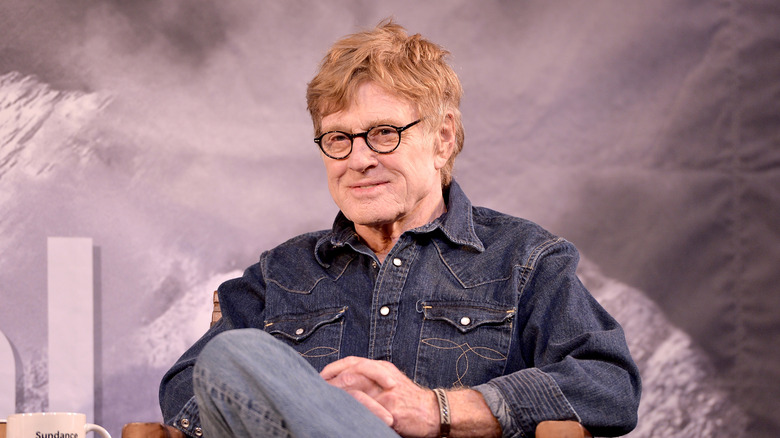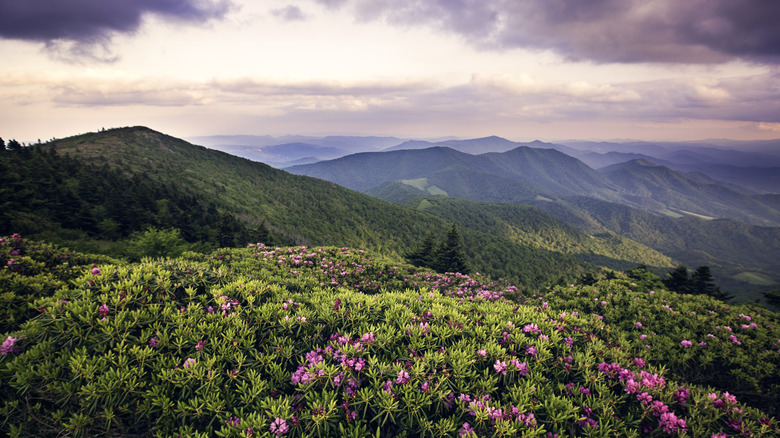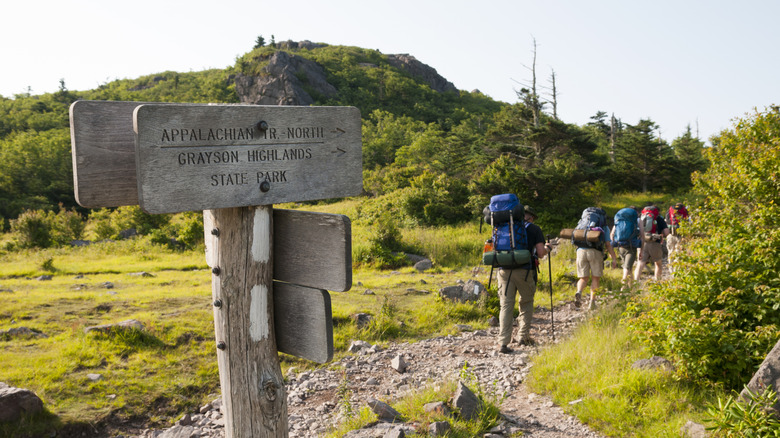The Popular Robert Redford Movie That Real-Life Appalachian Trail Hikers Can't Stand
We may receive a commission on purchases made from links.
Legendary actor Robert Redford's passing at the age of 89 left a remarkable legacy as both an actor and champion of the American outdoors — a star whose work inspired generations to consider the beauty and challenges of our environment. Yet, even as hikers revere his broader contributions to film and environmental causes, his 2015 movie "A Walk in the Woods", based on the 1998 memoir of the same name by acclaimed travel writer Bill Bryson, got a lukewarm reception among the Appalachian Trail (AT) hiker community.
The story follows Bryson (played by Robert Redford) returning to the U.S. after years abroad, and impulsively deciding to hike the herculean 2,190-mile AT, one of the world's best long-distance hiking trails, as a way to reconnect with his homeland and confront the transition into middle age. His wife (Emma Thompson) sets the tone in her parting words: "I just want to go on the record and say one last time I do love you. And try not to die." Unable to convince friends or family to join, Bryson teams up with his estranged, out-of-shape long lost friend Stephen Katz (Nick Nolte) to embark on an often comical and occasionally emotional adventure of self-discovery.
The book is a travel classic, blending insightful research and history, with laugh-out-loud hilarious personal misadventures. Hikers enjoy Bryson's dry wit, and praise the informative facts and his honest recognition of the physical and mental rigors of walking the AT. By contrast, the 2015 movie adaptation, starring the powerhouse trio of Redford, Nolte, and Thompson, and directed by Ken Kwapis, pares away much of the detail of the trail experience, focusing more on buddy-comedy tropes.
Why Appalachian Trail hikers feel let down by the movie
Perhaps the cult following Bryson's writing enjoys is part of the reason why the movie adaptation faced an uphill battle. The blog Mountain Hiking ranked it as the worst hiking movie: "I was dreading this movie. I loved the book so much. I never laughed so hard while reading anything." The book's biggest draw is its authentic voice; Bryson is just like them, struggling through blisters, gear mishaps, and moments of self-doubt, peppered with interesting snippets about trail conservation, geography, and the people you meet hiking the AT. Bryson writes: "The world, you realize, is enormous in a way that only you and a small community of fellow hikers know. Planetary scale is your little secret."
A further objection from Appalachian Trail Travel Guide to the film, which it gave two out of five stars, is that the characters don't complete the trail: "It was like they ran out of money for the movie and had to cut it short. They say it's about the journey and not the destination, but they should have highlighted more places, showing more beauty, and discussed more of the problems people face along the trail."
In all fairness, it was not just the movie that received this criticism. The New Yorker, in a review of the book, wrote that "By quitting in Gatlinburg and then hop-skipping up the trail, Bryson bastardized the central conceit of a thru-hike, which is that you hike through —through mountains and valleys, through farms and small towns, through pain, through hunger, through nagging doubt."
Does the film have a silver lining?
Despite the disappointments many hikers feel toward the film's softened portrayal, there's a saving grace worth acknowledging, starting with the stellar cast and enjoying Redford's performance in a comedic role. "A Walk in the Woods" is, to be sure, far from a first-timer's guide to the Appalachian Trail.
The movie does, however, offer a gentle introduction for a mainstream audience, highlighting the camaraderie, the humor, and the small moments of beauty that can be found on such a daunting journey. While it glosses over many realities Bryson so vividly details in the book, the film's lighthearted approach reflects the spirit of two flawed but determined men grappling with their own frailty.
On the subreddit r/AppalachianTrail, non-hikers commented that the book made them want to try hiking, while u/Rhaven said "Every year a movie or a book comes out that gets people excited to visit our national parks, trails or whatever. This is a very good thing, awareness and usage are the only things that make these trails possible." This balance may not satisfy hardcore AT thru-hikers, but it keeps alive a general curiosity, and invites viewers to consider exploring one of the best backpacking locations in the world, even if only from the comfort of their living rooms.


